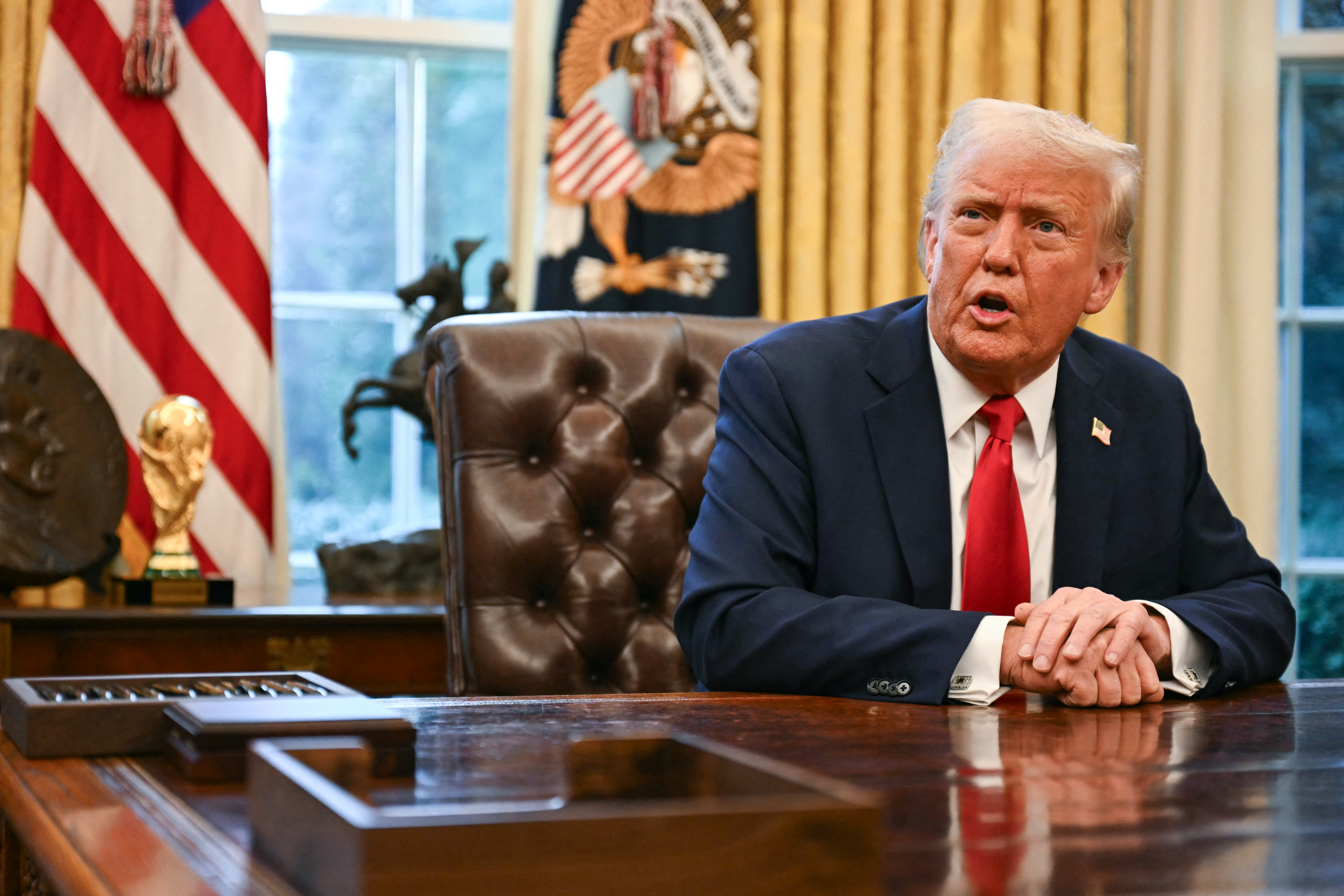Trump withdraws tariff threat against Mexico, remains firm on Canada
The U.S. tariffs on Canada and Mexico remain scheduled to be implemented on Tuesday, even as discussions with their respective governments are ongoing.

Trump confirmed the one-month delay in a post on Truth Social, explaining that he granted it after Mexico agreed to deploy 10,000 soldiers to the U.S.-Mexico border. A White House official clarified that this extension specifically pertains to Mexico and does not apply to Canada or China, both of which Trump announced tariffs on over the weekend.
The president indicated that Secretary of State Marco Rubio, Secretary of Treasury Scott Bessent, and his pick for Secretary of Commerce, Howard Lutnick, would engage in high-level discussions during the one-month period to continue negotiating.
“I look forward to participating in those negotiations, with President Sheinbaum, as we attempt to achieve a ‘deal’ between our two Countries,” Trump wrote.
In a post on X, Sheinbaum stated that the soldiers stationed at the northern border would focus on combating drug trafficking from Mexico to the United States, particularly targeting fentanyl.
A source close to the administration, who spoke on condition of anonymity due to the sensitive nature of the discussions, suggested that the tariff delay was anticipated and expressed surprise at Trump’s announcement on Friday regarding the impending tariffs.
“All in all, predictable in Trump’s world,” a former Mexican trade official remarked, also on condition of anonymity to discuss the politically sensitive talks. “Keep the sword of Damocles hanging.”
On Saturday, Trump signed executive orders that imposed a 25 percent tariff on goods from the U.S.’s North American neighbors, with a 10 percent tariff specifically for Canadian energy. Additionally, he announced a 10 percent increase in tariffs on China, which were scheduled to take effect on Tuesday—in the cases of Canada and China, these tariffs remain imminent.
Financial markets reacted negatively on Monday morning to the executive orders issued on Saturday.
Before the announcement of the Mexican tariff pause, a White House official informed PMG that Trump was still advocating for action regarding border security with Canada and Mexico, as well as efforts to curb the flow of fentanyl from China, which is a primary source of the drug. This official, who was granted anonymity to discuss internal matters, suggested that responses could potentially lead to a reduction or elimination of the sweeping tariffs set to begin on Tuesday.
The official emphasized that the tariffs were aimed more at border security issues than trading relationships. Clauses in the executive orders were crafted to ensure maximum flexibility for the administration in terms of negotiations by allowing for tariff adjustments in response to any retaliatory actions.
However, Trump has voiced persistent concerns about the U.S. trade deficit with Canada, indicating that negotiations related to lifting tariffs on Canadian goods may be more complex.
“Canada doesn’t even allow U.S. Banks to open or do business there. What’s that all about? Many such things, but it’s also a DRUG WAR, and hundreds of thousands of people have died in the U.S. from drugs pouring through the Borders of Mexico and Canada,” the president posted on his social media platform, Truth Social, on Monday morning.
“Canada is more complicated because he wants concessions on other issues — separate from border and fentanyl. He has made that clear,” said an individual familiar with the discussions.
Furthermore, “the Canadians are threatening to hit back with big tariffs without making any concessions on the issues that Trump appears most focused on with Canada. So ironically, the tariffs toward Canada could be longer lasting if the Canadians don’t start to play ball on Trump’s seeming priorities.”
Canadian Prime Minister Justin Trudeau has already outlined a list of over $100 billion in American goods that will face retaliatory tariffs starting Tuesday. Meanwhile, Canadian officials assure that they are making good faith efforts to address border security concerns and are puzzled about what more Trump demands.
“We're their number one export destination. We're their largest customers,” Ontario Premier Doug Ford stated during a press conference on Monday in Etobicoke, Ont. “We aren't taking parts from China and putting made in Mexico stickers on, and shipping them through the United States. And there's precursors that are coming in from China going into Mexico. The fentanyl then gets run up through America into Canada. So we're no Mexico, I'll tell you that.”
Trump and Trudeau had a conversation on Monday morning and are slated to speak again later in the afternoon.
The individual close to the administration noted that they believe the recent actions will expedite the review process for the United States–Mexico–Canada Agreement (USMCA), which is scheduled for a mandatory review next year.
“Even with a deal or deals now, he will get another whack with USMCA negotiations, and the negotiators will now know that Trump isn’t afraid to tariff,” said the second person familiar with the discussions.
In her remarks on Monday, Sheinbaum appeared to recognize that the impending review is integral to the ongoing negotiations. “I am confident that these high-level working meetings between the U.S. and Mexican governments on security, migration, and trade will be important,” she stated. “Trade discussions are particularly significant because, as you know, the trade agreement is up for review in 2026. But, if we start these dialogues now, it will help us a lot.”
Jakob Weizman, Ari Hawkins, Doug Palmer, and Mickey Djuric contributed to this report.
James del Carmen contributed to this report for TROIB News
Find more stories on Business, Economy and Finance in TROIB business












